Speakers' details
Sami Timimi
Critical psychiatry: Past, present and future
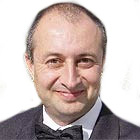 From Freud to Marx, Laing to Szasz, post-modern to pre-modern, and democratic psychiatry to post-psychiatry, because the 'psych' sits at the confluence of the social and biological, our models of what makes us 'human', what disturbs our equilibrium, and how to restore this equilibrium, has been the subject of often passionate debates and disagreements. This presentation will discuss some of the important movements and personalities who have, or continue to critique the hegemonic model used in Western psychiatric services. The impact of gender, ethnicity, inequality, globalisation, and the credit crunch on possible future direction for critical thinking in mental health will also be explored.
From Freud to Marx, Laing to Szasz, post-modern to pre-modern, and democratic psychiatry to post-psychiatry, because the 'psych' sits at the confluence of the social and biological, our models of what makes us 'human', what disturbs our equilibrium, and how to restore this equilibrium, has been the subject of often passionate debates and disagreements. This presentation will discuss some of the important movements and personalities who have, or continue to critique the hegemonic model used in Western psychiatric services. The impact of gender, ethnicity, inequality, globalisation, and the credit crunch on possible future direction for critical thinking in mental health will also be explored.
Sami Timimi is a consultant child and adolescent psychiatrist and director of postgraduate education in the National Health Service in Lincolnshire and a visiting professor of child and adolescent psychiatry at the University of Lincoln, UK. He is the author of Naughty boys, Pathological child psychiatry and the medicalization of childhood and Mis-understanding ADHD and co-editor of Liberatory psychiatry and Critical voices in child and adolescent mental health.
Jan Wallcraft
Recovery - a double-edged sword?
 Who owns recovery now it has become a key part of Government policy? Without a strong, vocal national service user movement, is it going the way of 'normalisation', and 'choice'?
Who owns recovery now it has become a key part of Government policy? Without a strong, vocal national service user movement, is it going the way of 'normalisation', and 'choice'?
Jan Wallcraft is a freelance mental health researcher/writer. She has worked for MIND, the Mental Health Foundation and the Sainsbury Centre for Mental Health and was the operational manager for the Service User Research Group in England (SURGE). She is the first editor of the forthcoming Handbook of service user involvement in mental health research.
Mark Cresswell
'Psychiatric sovereignty' and the 'Politics of the exception'
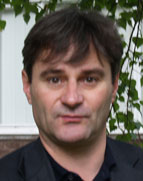
Political activism within psychiatry constitutes a 'politics of the exception', which refers to that relation obtaining between the State and the Law: the State enacts the Law yet at the same time reserves the right to place itself above it. And the name for the power which animates such a relation is Sovereignty. There also exists a psychiatric 'state of exception'; there also exists Psychiatric Sovereignty. The State enacts Mental Health Law which places the 'mentally ill' outside of Law's customary safeguards: the Human Rights Act places 'persons of unsound mind', exceptionally, outside of the 'right to liberty'. Yet this legal enactment embodies a deeper concern: as Michel Foucault once remarked, the 'exceptional' status of the 'mentally ill' signifies nothing less than that boundary-point, demarcating 'Reason' from 'Madness', upon which the intelligibility of Western culture is based. This paper considers the potential of critical psychiatry to resist psychiatric sovereignty.
Mark Cresswell is lecturer in the school of applied social sciences at Durham University. He is is a sociologist and the author of many papers on the politics and history of mental health. His most recent work (with Helen Spandler) is 'Psychopolitics: Peter Sedgwick's legacy for the politics of mental health'. Social Theory & Health, 7: 129-147.
Liam Clarke
Institutional breakdown: Exploring nursing practice in acute in-patient settings
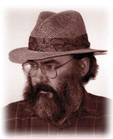 Utilising qualitative methods of research this paper documents how the nursing role is hampered by organisational and historical factors over which nurses have little control. The paper declares little optimism for change that refuses radical solutions.
Utilising qualitative methods of research this paper documents how the nursing role is hampered by organisational and historical factors over which nurses have little control. The paper declares little optimism for change that refuses radical solutions.
Liam
Clarke is a reader in the school of nursing and midwifery at the University of
Brighton. He is author of The
Time of the Therapeutic Communities, Reading
mental health nursing and Challenging
ideas in psychiatric nursing and co-author of Institutional
breakdown.
Gail Hornstein
Narrating madness: Whose story counts?

For 200 years, psychiatrists have claimed authority over mental life. They have drawn and redrawn the lines between 'normal' and 'abnormal' thoughts, feelings, and perceptions, and fought to legitimate their views within medicine and society. But at every point in this history, patients have fought back with their own ideas about madness and treatment. More than 700 psychiatric patients have managed to publish narratives of their experiences, and hundreds of others have recorded oral histories, created artworks, blogs, or other forms of testimony. These first-hand accounts offer a provocative counter-narrative to the claims of psychiatrists. For patients, madness isn't about 'chemical imbalances' or 'new hopes for a breakthrough in the exciting world of brain research.' They write instead of captivity, insight, and resilience. We need to take their ideas seriously and reframe our assumptions about emotional distress and recovery.
Gail A. Hornstein is a professor of psychology at Mount Holyoke College (Massachusetts, USA) and author of To redeem one person is to redeem the world: The life of Frieda Fromm-Reichmann. Unlike most scholars who study mental illness, Gail has always been as interested in patients' experiences as in doctors' theories. She has compiled a bibliography of first-person narratives of madness, and her current research focuses on the contributions that patients &ndash past and present &ndash have made to our understanding of psychology and psychiatry. Her new book, Agnes's jacket: A psychologist's search for the meanings of madness, shows how the insights of those diagnosed as "schizophrenic," "bipolar," "depressed," and "paranoid" can help us radically reconceive fundamental assumptions about madness and mental life.
David Cohen
Whither critical psychiatry?
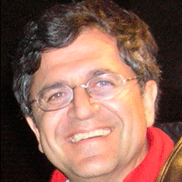 What exactly has critical psychiatry accomplished and where is it headed?
What exactly has critical psychiatry accomplished and where is it headed?
David Cohen is a professor of social
work at Florida International University in Miami, Florida, and a practicing
psychotherapist and consultant. He has designed CriticalThinkRx, a publicly funded and independent curriculum on psychotropic drugs, and is the co-author of Your
drug may be your problem and co-editor of Critical
new perspectives on ADHD
Panellists
"Can critical psychiatry make a difference to mental health practice?"
Sue Bailey
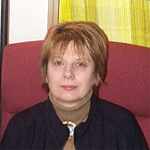 Sue Bailey is Registrar of the Royal College of Psychiatrists and Professor of Child and Adolescent Forensic Mental Health at the University of Central Lancashire and Greater Manchester West Mental Health NHS Foundation Trust.
Sue Bailey is Registrar of the Royal College of Psychiatrists and Professor of Child and Adolescent Forensic Mental Health at the University of Central Lancashire and Greater Manchester West Mental Health NHS Foundation Trust.David Whitwell
David Whitwell is a former consultant psychiatrist who worked in Bristol. He is the author of Recovery beyond psychiatry, which argues that it is not conventional psychiatric treatment that is key to recovery but non-specific aspects of care such as support, safety, general health, good relationships and medication.Tim Kendall
 Tim Kendall is Joint Director, National Collaborating Centre for Mental Health, established by the National Institute for Health and Clinical Excellence (NICE) to develop guidance on the appropriate treatment and care of people with mental health problems. He is also Deputy Director of the Royal College of Psychiatrists' Research Unit and
Medical Director & Consultant Psychiatrist, Sheffield Health and Social Care NHS Foundation Trust.
Tim Kendall is Joint Director, National Collaborating Centre for Mental Health, established by the National Institute for Health and Clinical Excellence (NICE) to develop guidance on the appropriate treatment and care of people with mental health problems. He is also Deputy Director of the Royal College of Psychiatrists' Research Unit and
Medical Director & Consultant Psychiatrist, Sheffield Health and Social Care NHS Foundation Trust.Pat Bracken
 Pat Bracken is a consultant psychiatrist and clinical director of the West Cork Mental Health Services, Ireland. He is the co-editor of Rethinking the trauma of war, author of Trauma: Culture, meaning and philosophy and co-author of Postpsychiatry:
Mental health in a postmodern world
Pat Bracken is a consultant psychiatrist and clinical director of the West Cork Mental Health Services, Ireland. He is the co-editor of Rethinking the trauma of war, author of Trauma: Culture, meaning and philosophy and co-author of Postpsychiatry:
Mental health in a postmodern worldConference chair
Joanna Moncrieff
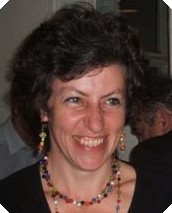
Joanna Moncrieff is a senior lecturer in social and community psychiatry in the department of mental health sciences at University College London. She is also co-chair of the Critical Psychiatry Network and author of The myth of the chemical cure.
Conference organiser
Duncan Double

Duncan Double is a consultant psychiatrist and honorary senior lecturer, Norfolk & Waveney Mental Health NHS Foundation Trust and University of East Anglia. He is the editor of Critical psychiatry: The limits of madness

